An HOA levy is a fee imposed by the Homeowners Association (HOA) to collect unpaid dues and other fees from members. This type of levy is separate from any debt that may be owed by an individual homeowner, such as a mortgage or other loan.
HOAs have the power to impose levies on homeowners who fail to pay their dues, and these levies can come with serious consequences for those who do not comply. In California, HOAs are empowered to place liens on properties when homeowners fail to make payments, which can result in foreclosure if left unpaid for too long.
It is important for homeowners to understand how levies work, and what repercussions they may face if they do not comply with their HOA's policies.

Foreclosures resulting from unpaid Homeowners Association (HOA) fees can be devastating for homeowners in California, so it is important to understand the basics of HOA liens. In California, when a homeowner fails to pay their HOA fees or assessments, the HOA may place a lien on their property.
This lien will remain active until the homeowner pays all outstanding fees and assessments, including interest and attorney's fees. The HOA may then foreclose on the property if these payments are not made.
It is important for homeowners to be aware that in some cases, even after foreclosure proceedings have been completed, they may still owe money on the underlying debt. Additionally, HOAs typically have a right of first refusal to purchase any foreclosed properties they have liens against at a public auction sale.
To avoid potential financial hardship as a result of an HOA foreclosure, it is essential for homeowners to keep up with their payments and stay informed about their state's laws regarding HOA liens and foreclosures.
In California, Homeowners' Associations (HOAs) have the legal ability to place a lien on a home when an owner falls behind on their dues. If these dues remain unpaid, the HOA can initiate a foreclosure process.
Fortunately, there are many rules and regulations in place at both the state and federal levels that protect homeowners from unfair practices. For example, the California Civil Code states that HOAs must provide written notice of default to homeowners before filing for foreclosure.
This must be delivered via certified mail or personal delivery with proof of receipt. Additionally, HOAs must also provide certain disclosures about foreclosures and resale procedures to anyone who purchases a unit after a foreclosure has taken place.
Furthermore, all foreclosures must take place through judicial proceedings, meaning they must go through the court system and receive approval from a judge before they can be completed. Lastly, HOAs must wait 90 days after recording the Notice of Default before they can file for foreclosure with the court.
These are only some of the California-specific rules that govern HOA liens and foreclosures; understanding these rules is crucial for any homeowner who is facing an HOA lien or potential foreclosure in California.

The impact of Homeowner Association (HOA) liens on mortgage payments in California can be substantial. HOA foreclosures can cause a homeowner's credit score to drop, preventing them from obtaining a loan or refinancing their home.
In some cases, the lender may even initiate foreclosure proceedings if the homeowner is unable to pay off the lien. When this happens, the amount owed on the lien is added to the amount owed on the mortgage and homeowners must make arrangements to pay both debts in order to avoid foreclosure.
Additionally, unpaid HOA liens may also result in legal fees and additional interest charges. It's important for homeowners in California to understand that when an HOA lien goes unpaid, it will remain attached to their property until it is paid off in full.
This means that any new owner of the property will be responsible for paying off the lien before they can take possession of it. For this reason, potential buyers should always check with their local HOA before purchasing a home in order to ensure that all outstanding liens have been satisfied.
Adhering to statutory requirements is an essential part of the process involved with HOA foreclosure in California. It's important for homeowners to understand their rights and obligations in order to ensure their compliance with all applicable laws.
For instance, before any foreclosure proceedings can be initiated, an HOA must provide notice of the lien and the homeowner's right to cure the delinquency or dispute it. This requirement applies even if the homeowner has previously been provided notice of a delinquent assessment or if there is evidence that they are aware of it.
Additionally, all foreclosures must be conducted in accordance with state law and any applicable regulations governing HOA liens and foreclosure procedures. Furthermore, HOAs must follow specific guidelines when conducting sales of foreclosed properties including providing notice to lenders, buyers and other interested parties prior to auctioning off the property.
While foreclosure offers an effective remedy for unpaid assessments, the process is complex and failure to adhere to legal requirements can result in significant delays and potential liability for HOAs. For this reason, it's critical for both HOAs and homeowners alike to exercise caution when navigating through HOA foreclosures in California.
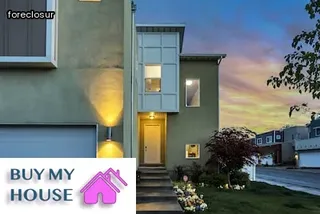
When it comes to facing a foreclosure in California, homeowners need to know their rights in order to protect themselves. An important first step is understanding the representation available to homeowners in this situation.
Homeowners have the right to be represented by a lawyer or other legal professional who can advise them through the process and help defend their interests. It is also important for homeowners to be aware of their rights during the foreclosure process so they can make informed decisions and understand how their actions may affect their financial situation.
It is essential that homeowners are represented by someone knowledgeable about California foreclosure laws who can ensure that all paperwork is completed accurately and all deadlines are met. Homeowners should also consider hiring an experienced real estate attorney who can provide advice on how best to minimize potential losses associated with a foreclosure and potentially work out a repayment plan or loan modification with the lender.
Knowing your rights when facing a foreclosure in California is key for any homeowner looking for ways to protect themselves, their family, and their property.
Real estate litigation is a legal process that can arise when homeowners experience foreclosure in California. Homeowners need to understand their rights and obligations during this process, as well as what to expect from the court system.
The first step of real estate litigation is filing a complaint with the court. This document outlines the details of the dispute and why the homeowner believes they should not be foreclosed upon.
After the complaint is filed, both parties will have an opportunity to present evidence and arguments in support of their case. During this time, it's important for homeowners to remain organized and prepared in order to make a strong legal argument.
Additionally, homeowners may need to hire an attorney or other legal professional who can provide additional advice and guidance throughout the process. Once both sides have had their chance to present evidence, a ruling will be issued by the court which will determine whether or not foreclosure is allowed.
It's important for homeowners in California to understand all aspects of real estate litigation so they can make sure their rights are fully protected throughout the process.
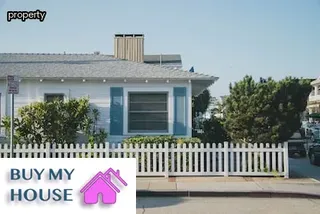
Resolving business disputes with an HOA Board is a complicated process, especially when it comes to Hoa Foreclosures in California. Homeowners must be aware of the potential consequences that come along with not resolving these disputes and being subject to an HOA foreclosure.
It is important for homeowners to understand the legal implications of being in default on HOA payments, including what their rights are and how they can protect themselves from further financial damage. Understanding the different methods of dispute resolution available, such as mediation or arbitration, is also essential for homeowners looking to resolve any issues they may have with their HOA Board.
To ensure a fair outcome, having legal representation is highly recommended as it helps homeowners understand their rights and obligations under the law. Taking proactive measures will help avoid any potential harm resulting from unresolved Hoa Foreclosure disputes in California.
Addressing construction defects in a timely manner is essential for California homeowners who are facing the consequences of Homeowners Association foreclosures. Without prompt action, the home may be subject to further damage due to weather conditions or other factors.
In order to avoid additional damage and liabilities, homeowners should be aware of their rights when it comes to addressing construction defects. They should contact their HOA board as soon as possible and work to resolve any issues that may arise.
It is also important for homeowners to understand the local regulations regarding construction defects and how they can affect an HOA foreclosure process. Knowing what steps need to be taken and when can help ensure that issues are addressed in a timely manner, preventing costly damages and liabilities.
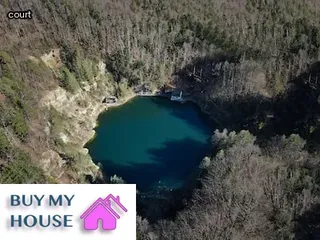
When a homeowner defaults on their Homeowners Association (HOA) dues in California, the association can place a lien on the property. This lien is then recorded against the property title, and until it is paid, the homeowner cannot sell the property or refinance their mortgage.
Because of this, it's important for homeowners to be aware of what wiping out a lien versus erasing the debt owed really means. Wiping out a lien legally removes it from the property title, but erasing the debt is different.
Erasing the debt involves negotiation between the homeowner and HOA and can include repayment plans or even waivers of certain fees. The only way to remove a lien is by paying off all outstanding fees associated with that particular lien.
However, if negotiations between both parties are successful, some of those fees may not have to be paid in full. In either case, understanding the difference between these two legal terms will help homeowners protect themselves against foreclosure and remain in control of their properties.
The foreclosure of a homeowner's association (HOA) lien can cause significant financial distress and even loss of property. In California, it is important for homeowners to be aware of their rights in the event of an HOA foreclosure.
Homeowners should know that they have the right to establish equity rights in order to protect their homes and other assets from being taken by the HOA. Despite being foreclosed upon, homeowners may still be able to establish equity rights and claim a portion of any proceeds from the sale of the property or receive an award for damages if they are unable to retain ownership.
Homeowners should also be aware that HOAs cannot foreclose on a property without first securing approval from a court, which offers additional protection for homeowners during this process. Lastly, it is important for homeowners to understand that HOAs are not allowed to collect more money than what is owed on the lien, as well as any interest that has accumulated over time.
Knowing these key points can help California residents protect themselves and their assets in the event of an HOA foreclosure.
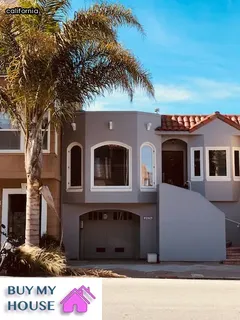
When facing foreclosure in California, homeowners have a certain period of time to make the necessary decisions and payments before they face legal consequences. This period of time is determined by the Homeowners Association (HOA) and is usually outlined in their governing documents.
Generally, the HOA will provide a Notice of Default to the homeowner, which states that a certain amount of money must be paid within a specified timeframe or else they will proceed with formal foreclosure proceedings. Depending on the specific situation, this timeframe can vary from as short as 30 days to several months.
If payment is not made during this period of time, the HOA may file a court action and pursue the foreclosure process. Homeowners should be aware that if they fail to make payments or take other necessary actions for too long, they may ultimately lose their home through foreclosure.
It is important for homeowners to be aware of their rights and obligations when dealing with HOAs so that they can work towards resolving any issues in order to avoid foreclosure.
If a homeowner in California fails to pay fines assessed by their homeowners' association (HOA), they face serious consequences. In some cases, the HOA may choose to foreclose on the property and recoup the unpaid fees and fines.
Foreclosure is a serious issue that can have long-term financial ramifications, so it's important for homeowners to understand what can happen if they fail to pay HOA fines in California. When an HOA forecloses on a property in California, the home is typically sold at auction and the proceeds are used to pay back any outstanding fees or fines.
If the amount received from the sale of the property does not cover all of the unpaid fees and fines, then the homeowner will be liable for any remaining balance. Unfortunately, this means that homeowners could end up with a large debt that must be paid off before they can purchase another property in California.
Additionally, there is also potential for other penalties such as late payment fees or interest charges to be added on top of the original amount owed. Homeowners should always make sure they stay current with all payments due to their HOA, as failure to do so could have significant financial repercussions.
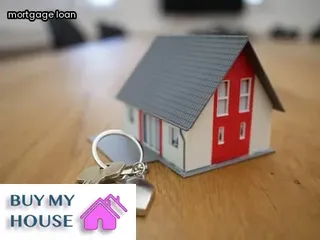
In California, the redemption period for HOA foreclosures is a set time frame during which homeowners have the right to redeem their property from foreclosure. The length of this period is generally determined by state law and can vary from 90 days up to one year or longer depending on the individual circumstances of the foreclosure.
During this period, homeowners are able to pay off any debts owed to the HOA in order to reclaim their home and avoid foreclosure proceedings. However, if they are unable to do so by the end of the redemption period, then they will lose their home and be responsible for any remaining debt associated with it.
Homeowners should be aware that non-payment of HOA assessments could lead to foreclosure and should take steps to stay current on payments or seek alternate loan options before the deadline arrives. Understanding the redemption period for HOA foreclosures in California is essential for homeowners who are at risk of losing their home due to financial difficulties.
In California, the Homeowner's Association (HOA) has the power to enforce a set of rules and regulations, but some of these rules may be considered unenforceable. For example, HOAs cannot enforce rules that are in conflict with federal or state laws or public policy.
Generally, HOAs cannot enforce rules that are excessively burdensome or otherwise oppressive. Some examples of unenforceable HOA rules in California include restrictions on the number of people occupying a unit, limits on religious services at home, age restrictions for tenants and guests, regulations about clothing choices for adults and children, and limits on political activities within an HOA community.
Furthermore, HOAs cannot impose fines or other penalties for non-payment of assessments unless they have been specifically authorized by the governing documents such as covenants and conditions. It is important for homeowners to understand what kind of HOA rules can and cannot be enforced in order to avoid potential foreclosure consequences due to violation of an unenforceable rule.
In California, Homeowners Associations (HOAs) have the power to foreclose on homeowners who fail to pay their dues. This is a process known as lien foreclosure, which involves placing a lien on the property and then initiating a foreclosure action if dues are not paid.
HOAs also have the power to levy fines for violations of their Covenants, Conditions & Restrictions (CC&Rs). This means that failure to comply with regulations set forth by the HOA can result in costly fines.
Lastly, HOAs can also impose liens on homes for unpaid assessments or other debts due to the association. It is important for homeowners in California to understand what powers an HOA has so they can be aware of their rights and how best to protect themselves from potentially damaging financial situations.